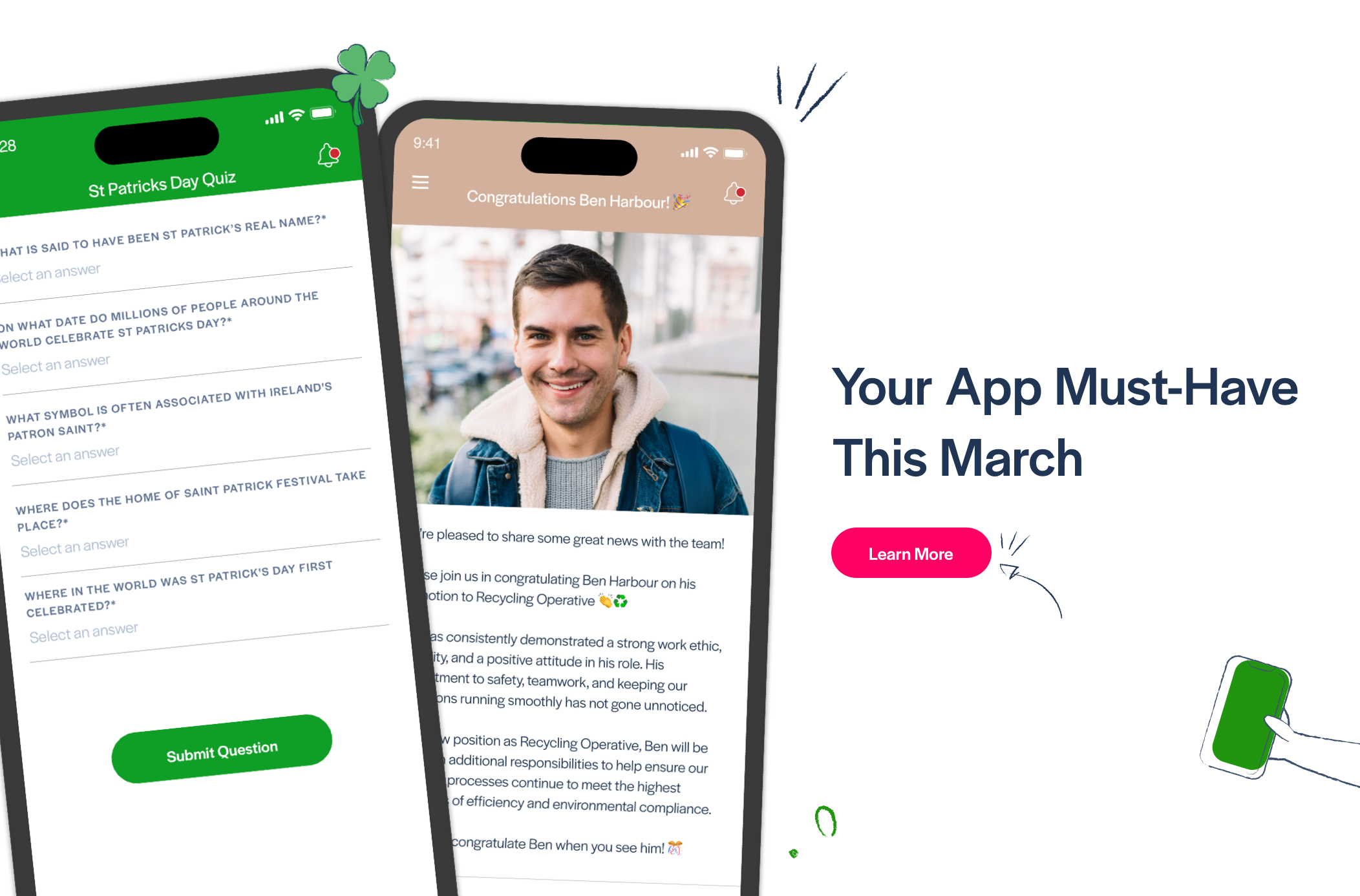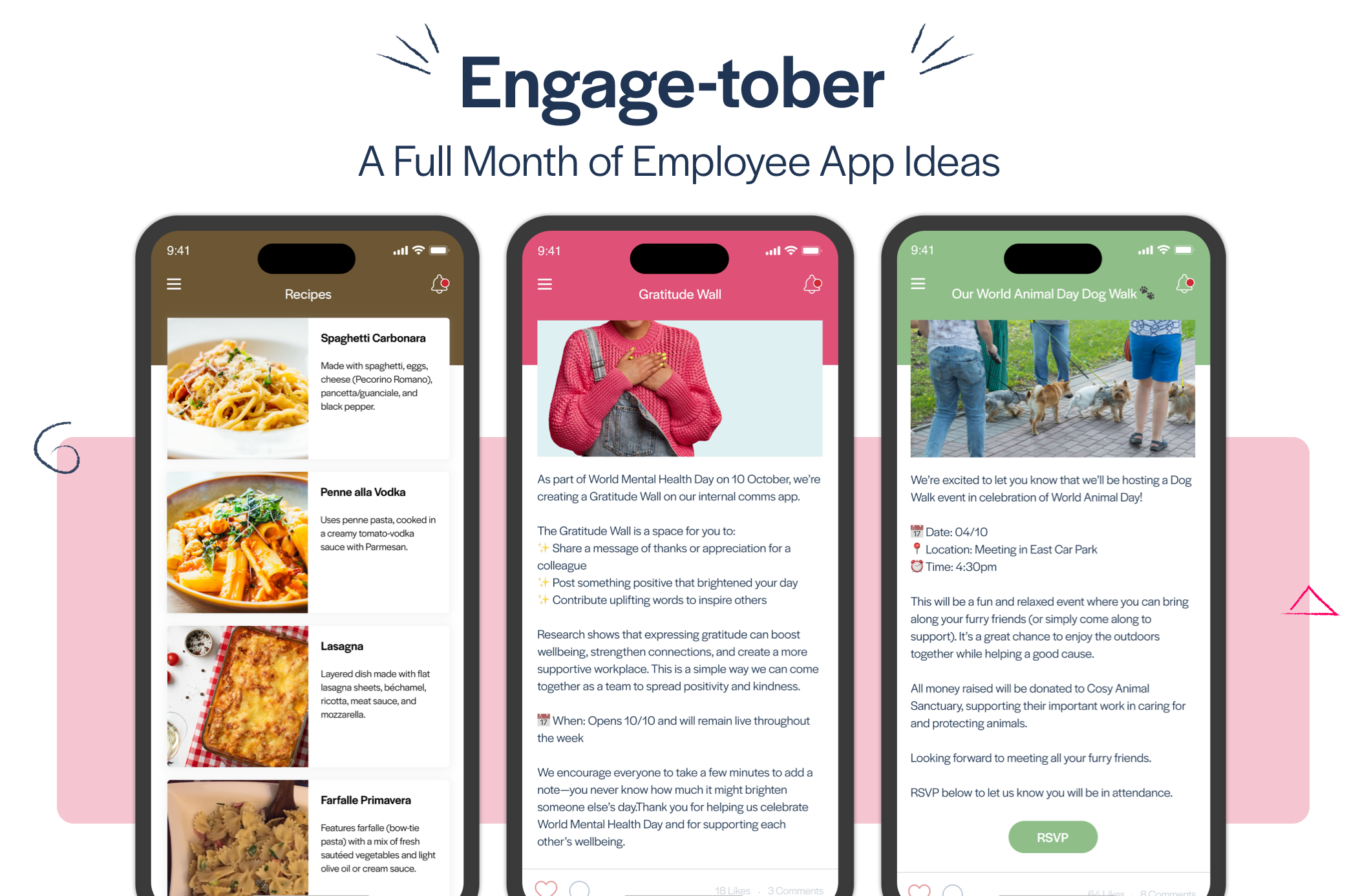
Blog
Business Critical: Communicating with Front-line Employees
How can an internal communications platform help with communicating business critical information?

They’re often the face of your organisation, and the ones working hard to accomplish the critical tasks that keep your business humming. They’re your front-line staff, field and floor employees, and it’s up to you to keep them in-the-know and engaged.
You may have heard this eye-opening statistic before, but it bears mentioning again: 80% of the global workforce is desk less. And desk less usually means computer-less, which means access to company news and key staff updates should be delivered in a form that’s every bit as mobile as the employees themselves.
Just as important as access is consistency, agility and speed of information — particularly where business-critical, safety or weather updates are concerned.
So, how can you make that happen?
It's also important to mention another interesting statistic - smartphone penetration exceeds 75% in many countries across the world.
Four steps to ensuring that your front-line employees get the right information at the right time on the right device — their mobile devices.
Step 1: Know Your Employees
You may not have the ability or proximity to know every single employee personally, but at the very least, you can find out what’s important to each role and what the individuals in those roles require to function effectively and successfully. What resources do they need, and which channels do they have ready access to? What technology do they rely on? What circumstances might prevent them from doing their jobs well, or might even put them in danger?
Just how you collect this information will depend on your organisation.
An Post, the provider of postal services in Ireland (and one of the country’s largest employers), learned via an employee satisfaction survey that employees were suffering from a huge internal communication breakdown.
To overcome this problem, they considered “extranet” and widening email access. But after failing to effectively warn employees of a severe weather event in 2018, they realised the right technology solution should be be easy to access and use.
An Post found this solution in an employee communications app from Thrive, which was delivered in just a few short weeks — a boon since time was of the essence. The app, Post People, has a clear focus on sharing up-to-the-minute news and keeping employees informed and safe, wherever they are.
Step 2: Choose Inclusive Communications Channels
During the process of getting to know your front-line staff, you may find that they feel cut off from what’s going on in the company — despite your best efforts to communicate via email, newsletters, notice boards or other channels.
This was the case for Subsea 7, a global leader in the delivery of offshore products and services for the energy industry. Prior to the launch of their employee communications app, called 7OFFSHORE, crews reported feeling left out and as though any communication they received was one-sided.
They’re not the only workforce that feels that way: a key study found that 74% of employees feel out of the loop.
Mobile app technology righted the communication ship for Subsea 7 crews, who now receive urgent safety updates, as well as other news and content. Plus, these remote crews have the additional benefit of reacting to content with likes and comments, and even creating and publishing their own content within the app.
Step 3: Target Communication to Front-line Workers
Communication with employees should never be “one message fits all.”
When you know your workers, consider them as individuals, and seek to be inclusive with communication, it becomes even more clear that different departments, roles, and locations need different content to function effectively.
Digital communications tools that allow you to segment your employees, then personalise content and push relevant information to the right teams help you accomplish this step.
Santos Brasil (the largest port operator in Latin America) is able to target content down to the individual employee using their app, notifying employees in real time of shift changes, in addition to the latest ship operating information.
This level of personalisation hasn’t only improved operating efficiency for Santos Brasil; it’s increased employee engagement, as well — a goal of any good communications strategy.
Step 4: Don’t Just Tell. Listen, Too.
So, you’ve invested time and resources to understand employees’ needs. You’ve worked through issues of inclusivity by selecting the right channels and tools, and you’ve gotten really good at personalising and targeting content to the right employees.
Now what?
By this step, you realise that strong internal communications (like any good communication) are never one-sided. Employee communications apps give you a bounty of ways you can listen to your front-line employees, even though they’re working out in the field or on the floor or elsewhere.
Analytics tell you what content is viewed and when. Data about likes, comments and shares provide actionable insights that can inform not just future content and communications, but even company policy and culture. And app content created by your employees gives them a voice and gives you a window into their experiences working for your company.
Employee communications apps are unique in their ability to provide the kind of circular communication that is critical not just for communication success, but business success, as well.
Next Steps…
Ready to take your communication beyond, notice boards, CEO blogs and policy training?
Find out how building an employee communications app with Thrive can make your organisation an internal communications success story.









